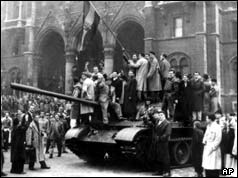
Sean O'Casey's second son, Niall, was born in 1935, and was educated at Dartington Hall, the alma mater of the left-wing glitterati and atheists such as Bertrand Russell and other Bloomsbury notables and their offspring. As Macmillan, also, said of that circle,’ all that lot were mad. They thought they were being very avant-garde. You see, no Russell ever went to school; they were always slightly odd; they never met other people’.
Neither Niall nor his elder brother Breon brought home friends to meet his father, and Niall played the trombone, had a lively sense of humour, and an excellent ear for imitating accents. He later attended the LSE, but, alas from his father's point of view, didn't become fully radicalised, as one might expect from the left-wing track record of that institution.
It was after Niall had been demobbed from national service in 1955 that he developed a passion for politics like his father, but it was the tensions of 1956 when in June came the Anglo-French invasion of Suez, a move to forestall the nationalisation of the canal by Col Nasser and in support of Israel, that raised strong passions everywhere. Students of the LSE staged a demonstration in which one can imagine Jeremy Corbyn, had he been the relevant age, taking part. This at one stage looked as if it might become violent.
But hot on the heels of the Suez debacle with which father and son were united in opinion, there followed the Soviet invasion of Hungary, which caused deep divisions in the British Communist Party. This brought Niall’s relationship with his father to a crisis. Niall was deeply upset by the new imperialist phase of Russia revealed by this, and father and son argued hotly. O'Casey himself grew strangely stubborn and hard, and insisted that anyone who was against the Soviets should be shot.
"On this day ...." BBC report of Soviet Invasion of Hungary
Now O'Casey was known as a man of gentle nature and yet he could, and did, as has Corbyn, defended inhuman and murderous responses. But he showed, and dare one say it without being accused of political incorrectness, the other face of the left-wing relativism which shies away from consistency and integrity, while maintaining a touchy-feely appeal to the compassionate and empathetic. Yet ultimately could it be congratulating itself on having the ‘right’ and true humanitarian feelings, and ultimately prove a rather disagreeable form of narcissism? O’Casey, similar to Shaw, never gave this up, and like that other great playwright Bertolt Brecht , who supported the East German hard-line regime, never changed his beliefs. One wonders what Corbyn might make of the left-wing realism of George Orwell, who while he fought on the Republican side in the Spanish Civil War, ultimately saw into the heart of Stalinist oppression.
O'Casey's quarrel with his son reached its worse when Niall wrote to his father, “Dear Daddy, one can imagine the stakes that had been made in used in Europe as being the same here, as if the Soviet Union had liberated us from Hitler, and had set up J. R. Campbell and his gang as government. This isn't common wisdom at all. The "doublethink" reminds me of Capt Waterhouse."
Sean did not like this at all, nor bend an inch towards his son, for he had absolutely no sympathy with his enemy Orwell's coinage of the word doublethink. He failed to see that what distressed Niall more than the invasion itself was his own support of it. Scornfully he dismissed the letter, "he hides the distress under the careless scorn of his letter writing”.
Next time Niall next came home to Devon, where his parents lived, he looked unusually tired and worn with his face, full of illness. He was at once diagnosed with a sudden onset of leukaemia, and after rapid and desperate attempts to stem the illness with transfusions and drugs, he died that same Christmas. O'Casey used atomic testing as the scapegoat, declaiming "and the political bastards still go on with their atom bomb tests assuring the spread of this curse into every home, if their murderous madness isn't stopped”...
Yet who could say that his father's denunciation hadn't played a part in this catastrophic decline in his sensitive and highly strung son’s health. Many say that disappointment and frustration do and can play a critical part in the onset and development of cancer.
I can only add to this sorry, possibly instructive tale, the advice: Beware the iron, Stalinist fist hidden in the soft, velvety and well creased glove, attractive in its appeal of ageing careworn honesty like O’Casey’s.
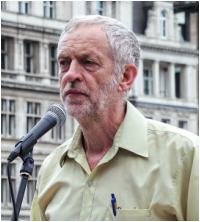
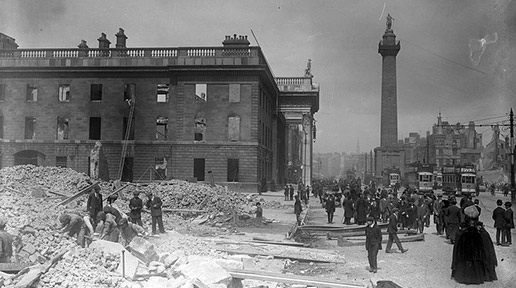
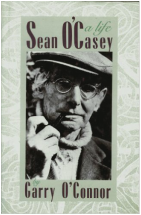
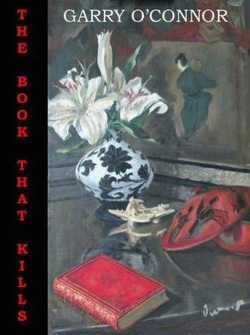
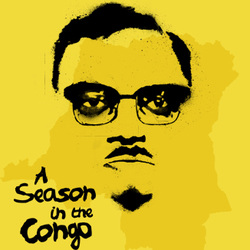
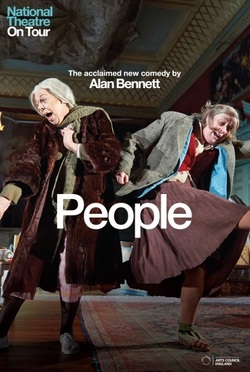
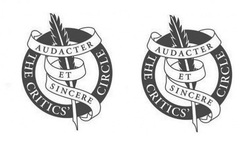
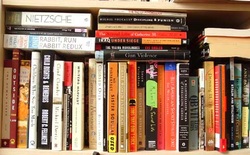

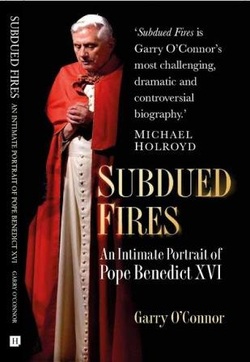
 RSS Feed
RSS Feed
